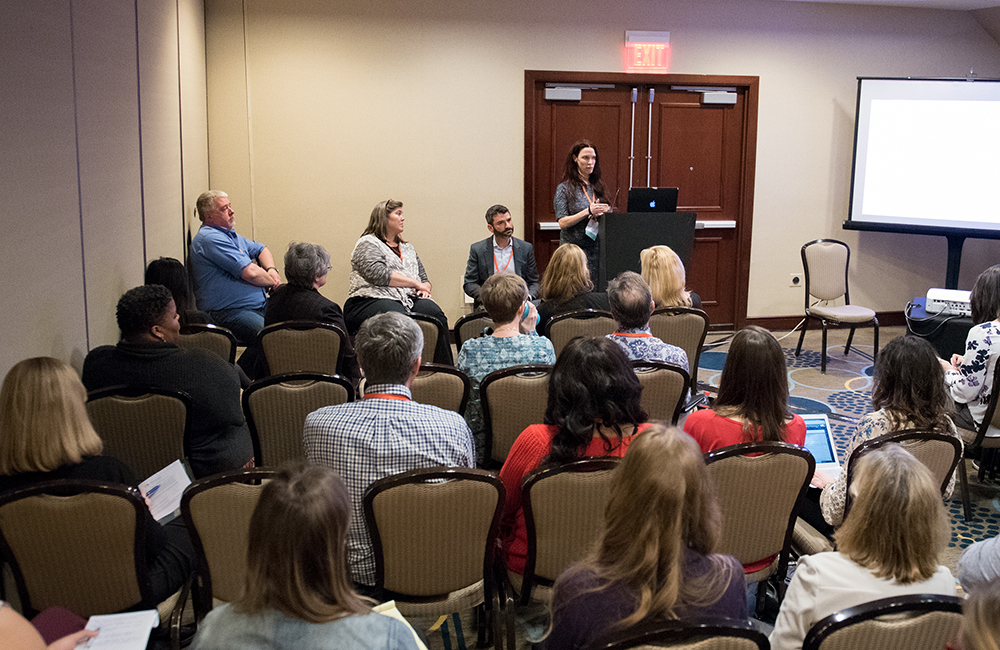WASHINGTON — Some laws can make life exceptionally difficult for homeless and runaway youth. Whether it’s requiring parental consent to receive health care or demanding proof of residency to obtain a photo ID, unfriendly policies have left many service providers feeling frustrated and powerless to help. A small national nonprofit based in Washington is working to change that.
SchoolHouse Connection is helping local youth advocates, school liaisons, homeless service providers and other organizations to spearhead policy change from the ground up. SchoolHouse is currently co-leading advocacy on 17 bills in eight states, including Kentucky, Maine, Nevada and Tennessee. Local partners receive assistance with everything from drafting bill language to paying for lobbyists.
“I have been frustrated that no matter how much a nonprofit does, no matter how many different ways you try to provide services … you’re still stuck because there are some things that are just outside your control,” said Arash Ghafoori, executive director of the Nevada Partnership for Homeless Youth. “Quite simply put, if we really want to end youth homelessness, policy advocacy has to be integrated into our mission.”
Ghafoori was one of three panelists who spoke about their experience doing state-level advocacy work at the National Summit on Youth Homelessness, held this week in Washington. The gathering, sponsored by the National Network for Youth, featured more than a dozen informational sessions and provided an opportunity for attendees to meet with their Senate and House representatives on Capitol Hill.
Ghafoori, SchoolHouse Connection and other advocates are working to pass a Senate bill in Nevada that would require school districts to provide students experiencing homelessness with partial credits for partial coursework completed, which would maximize their progress toward graduation. Another bill in the works would waive fees for birth certificates, identification cards and drivers’ licenses for homeless youth.
Without proper ID, homeless youth are often unable to pick up prescriptions, apply for jobs and public benefits, open a bank account or enroll in school. Twenty-six states require two proof of residency items to get a nondriver ID, and 12 states require a parent or guardian to be present for a minor to apply for an ID card.
Institutes teach advocates about bill passage
SchoolHouse starts the advocacy process by convening what it calls a “State Advocacy Institute” with stakeholders. During these meetings organizers look at state-level policies affecting homeless youth, conduct advocacy training and make a plan to get new legislation passed.
“I got tired of fighting the same fights year after year,” said Catherine Knowles, a homeless education program coordinator for Metro Nashville Public Schools in Tennessee. She participated in her first State Advocacy Institute in November 2017. The bill they worked on went into effect the following July. She was surprised by how quick and straightforward the process was.
“It was really daunting to me at first. I’m a social worker, not a policy person,” she said. “The idea of trying to start that on my own … I would have never taken on. But it was really very simple.”
Knowles is currently working with SchoolHouse and other partners on legislation that would require postsecondary institutions in Tennessee to designate a student liaison to help homeless youth with financial aid and other services. The bill would also give students experiencing homelessness priority access to on-campus housing.
“Advocates don’t have to reinvent the wheel to draft legislation. It’s more tooling what’s already been done in other states,” said SchoolHouse’s executive director, Barbara Duffield.
An estimated 700,000 minors without a parent or guardian experience homelessness each year, according to a 2017 study by the University of Chicago’s Chapin Hall. They leave home for a variety of reasons, such as parental abuse and addiction, or they may be kicked out for identifying as LGBTQ or becoming pregnant.
Duffield stressed the importance of including these youth at every step of the legislative process, from identifying needs to testifying before lawmakers.
“We work directly with young leaders … we plug them into our state policy work,” she said.
Other legislation that SchoolHouse is working on includes a Missouri bill that would allow foster youth to receive Medicaid coverage until age 26 and a Maine bill that would expand the state’s foster youth tuition waiver to include homeless youth. Last week advocates in Kentucky saw the passage of a bill that will allow youth to receive outpatient mental health counseling without parental consent.
“It has been so gratifying to provide partnership and support to smart, engaged local advocates,” said Patricia Julianelle, SchoolHouse’s director of program advancement and legal affairs. “I’m very optimistic about all of these bills.”
